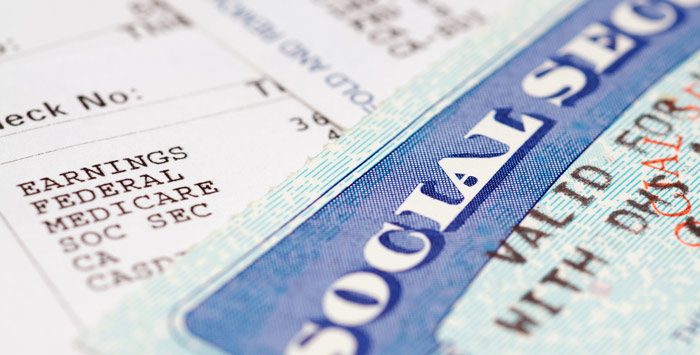Q: Do I need to be on Social Security to get Medicare coverage?
A: Millions of seniors rely on Medicare for health benefits in retirement, and depend on Social Security as a key income source. But while the two programs are interrelated, participation in one doesn’t necessarily hinge on being signed up for the other.
At what age do I qualify for Social Security?
You can begin collecting Social Security retirement benefits as early as age 62. Doing so, however, is often not advisable, since it means lowering your monthly benefits – potentially for life.
To collect the full monthly benefit your earnings record entitles you to, you must wait until full retirement age to sign up for Social Security. Depending on your year of birth, that age will fall out somewhere between 66 and 67. For each month you file for Social Security ahead of full retirement age, you’ll face a reduction in your monthly benefits that will likely remain in effect indefinitely, unless you manage to go through the motions of withdrawing your application soon after filing it.
At what age do I qualify for Medicare?
Medicare eligibility for seniors begins at age 65 (though some people qualify before that time because of a disability or other circumstance). Your initial enrollment period for Medicare begins three months before the month of your 65th birthday, and ends three months after the month you turn 65.
If you miss your initial Medicare enrollment window, you can sign up during the general enrollment period of January 1 through March 31 of each year. But holding off too long could cost you. If you wait too long to sign up for Medicare Part B, you’ll face a 10 percent increase in your Part B premiums for every year-long period you were eligible to enroll but didn’t. There are also financial implications associated with waiting too long to sign up for a Part D drug plan.
That said, if you’re still working and have coverage under a group health plan during the seven-month period surrounding your 65th birthday, you’ll get a special enrollment period that begins when you separate from your employer or your group coverage ends. As such, you won’t have to worry about the aforementioned penalties provided you sign up during your special enrollment period.
Can it be a good idea to delay enrollment in either Social Security or Medicare?
It often pays to delay Social Security past full retirement age, because in doing so, you get to accrue credits that boost your benefits by 8 percent a year up until age 70. Therefore, if you don’t need the income from those benefits right away, you could conceivably sign up for Medicare at 65 and then wait another five years before filing for Social Security.
There are also scenarios where it might pay to get on Social Security before enrolling in Medicare. If, for example, you’re still working and have access to a heavily or fully subsidized health plan through your job, you may not have a need for Medicare. On the other hand, you might want your Social Security benefits to supplement your income, pay for travel, or help put your grandkids through college.
Remember, health coverage under Medicare doesn’t necessarily come cheap. Between premiums, deductibles, and coinsurance, you might find that your out-of-pocket costs are substantially lower under a group health plan, in which case it pays to stick with it as long as you can.
Make your decisions independently
Collecting Social Security is by no means a prerequisite to getting Medicare. In fact, it’s often advisable to sign up for Medicare as soon as you’re eligible (assuming you don’t have other health coverage) but wait on Social Security to avoid a reduction in benefits, or boost them as much as possible.
The only downside to signing up for Medicare alone is having to make your premium payments directly, as opposed to having them deducted from your Social Security benefits, but it’s a small price to pay for the upside of a higher lifetime income stream.
Maurie Backman has been writing professionally for well over a decade, and her coverage area runs the gamut from healthcare to personal finance to career advice. Much of her writing these days revolves around retirement and its various components and challenges, including healthcare, Medicare, Social Security, and money management.
Tags: eligibility, enrollment, Social Security





